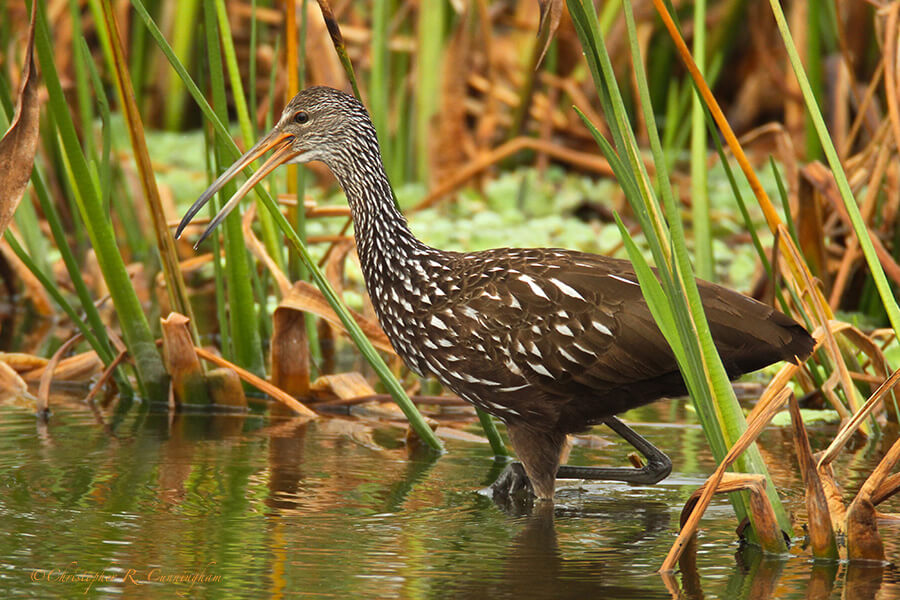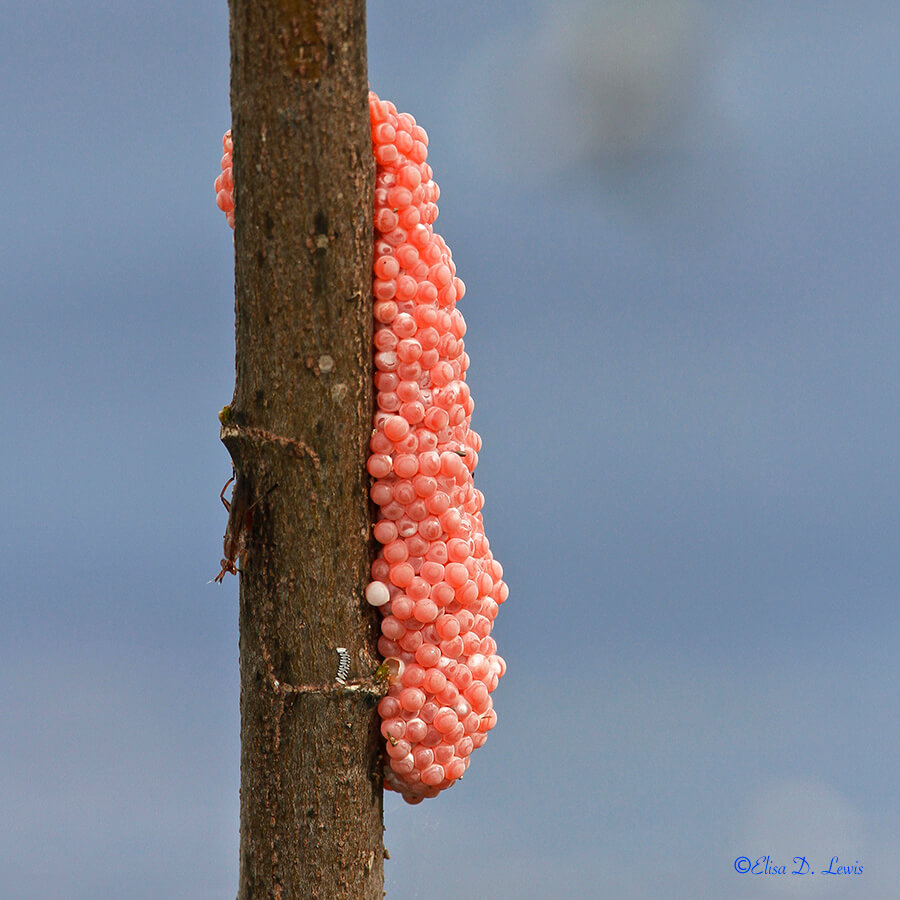
On a recent birding to trip to Florida we were excited to see Limpkins, odd rail-like birds that feed primarily (75%) on applesnails. Limpkins are snail specialists with slightly right-curving beak-tips to reach inside snail shells. Historically, Limpkins have fed on the Florida Applesnail, the one indigenous U.S. applesnail species. However, the U.S., especially the Gulf Coast, is currently under invasion by several additional species of Neotropical applesnails (Genus Pomacea, but we’ll leave the contested details of which species are which to the gastropod taxonomists!).
Two species of snail-eating birds appear to be taking advantage of this invasion: Limpkins and Snail Kites. Limpkins are reportedly expanding their range in Florida to harvest the explosion of invasive snails, and the Florida subspecies of Snail Kite appears to be rebounding from the brink of extinction based on the proliferation of prey. White Ibis also dine on applesnails and may be benefitting from increased food supplies.
Although these invasive mollusks seem to be benefiting these birds, many naturalists fear the applesnail invasion. These snails have become major agricultural pests in other parts of the world where introduced, and some species host the rat lungworm parasite (now doesn’t that sound pleasant?). Even in death applesnails pose a threat: shells discarded by Limpkins and Snail Kites serve as water reservoirs for the breeding of invasive Asian tiger mosquitos.
Seems that everywhere we go on our birding adventures we find invasives (or their impacts), or in researching these posts, read about the impacts invasives have on birds or the environment in general. Pristine environments are now non-existent. Even in parks and preserves billed as being “native,” cursory inspection of land or water soon usually reveals invasives, be they Chinese tallow trees, water hyacinth, Hydrilla, or privet—or applesnails. I somehow doubt, though, that Limpkins and Florida Snail Kites will accompany the applesnail invasion of Texas. Pity.

Time sometimes flies like a bird, sometimes crawls like a snail; but a man is happiest when he does not even notice whether it passes swiftly or slowly.—Ivan Turgenev
©2014 Christopher R. Cunningham and Elisa D. Lewis. All rights reserved. No text or images may be duplicated or distributed without permission.